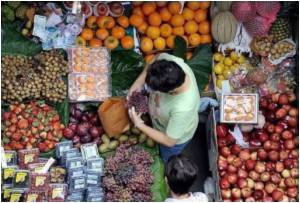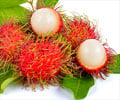
It raises the prospect of farmers being able to speed up or delay the ripening of entire crops of fruit to prevent them falling victim to unseasonal weather.
Scientists from Leicester University have applied to patent the technique, and are now planning to test it on tomatoes, bell peppers and citrus fruits.
In a study, researchers demonstrated for the first time that a regulatory system which governs how proteins are broken down in plant cells also affects chloroplasts - structures which control photosynthesis.
Using thale cress, a small flowering plant, they showed that altering a particular gene could change the speed with which chloroplasts transform into other structures in plant cells, including those involved in the ripening of fruit.
Testing the mechanism on crop plants will prove whether or not it could one day be used commercially to ensure fruit always ripens at the right time, the researchers explained.
Advertisement
"It is incredible to get to this point - it has been a long journey. We have known for some time that this was going to be a big breakthrough," he said.
Advertisement
The study is published in the Science journal.
Source-ANI














